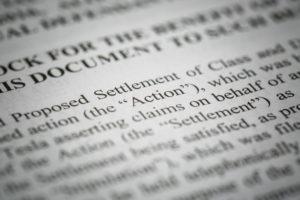
When many people suffer harm because of the same person, company, or other entity, a mass tort is often the best option for handling many claims and moving them through the legal system efficiently.
Some of these cases can involve thousands – or even hundreds of thousands – of individuals all seeking justice and compensation for their losses and expenses. If handled in a traditional sense, it could take decades and clog up the civil courts nationwide.
For this reason, two common options exist for creating a mass tort that helps move these cases forward faster. They may make it easier, less costly, and much quicker to get compensation and move on with your life—or at least put this chapter behind you. These include multidistrict litigation and class action lawsuits. While they are similar, they also have key differences and are used under different circumstances.
What Is Multidistrict Litigation?
When there are a multitude of individual lawsuits filed against the same entity in many different districts, a request can be made asking for all these cases to be heard before one judge. When this request is granted a judicial panel is asked to pick one judge who will hear all of these related cases.
Once a multidistrict litigation case has been formed, all civil cases with related issues will get transferred to that one judge. Usually a plaintiff fact sheet is formed in order for the defendant to gather preliminary information.
These cases all remain united and move forward as one case through pre-trial motions, discovery, and the first handful of trials, known as bellwether trials. While this all works in tandem to inform each individual case, each plaintiff continues to have their own lawsuit to worry about.
The outcome of the bellwether trials has no direct effect on other cases. However, they often show the defense how much they stand to lose as additional trials go before a jury. A positive outcome in these cases often leads to global settlement offers. If there is no settlement or the plaintiff rejects the settlement, their case will go to trial in its original jurisdiction.
For a free legal consultation, call 800-537-8185
Multidistrict Litigation and Class Action Lawsuits
Many people ask what is the difference between multidistrict litigation cases and class actions. While they both allow the courts to handle many different claims at one time, class actions only actually involve one lawsuit. A class action is where a large group of people file a lawsuit as a group. A class action does not involve an individual lawsuit.
The courts determine when there are enough interested parties to create a class, then an attorney files a single lawsuit on behalf of the entire group. The people in this class must have one or more legal or factual claims common to the entire class and the class must be so large as to make individual lawsuits impractical.
The court determines the characteristics and eligibility of the class members. In general, those involved in a class action suit have similar mechanisms of injuries and losses.
Each Type of Mass Tort Has Its Use
The type of mass tort used in a case depends on the facts of what happened to those looking for justice through the court system. In all cases, the plaintiffs experienced physical, emotional, or financial harm because of another party’s bad behavior.
In a class action, though, the plaintiffs must have enough in common to make it fair for everyone to receive the same verdict and compensation. Money is not divided equally in these cases, though.
In the last several years the courts in Louisiana have made it difficult to proceed as a class action because the courts have found more differences than similarities with peoples’ tort claims.
Therefore, multidistrict litigation cases have been on the rise. Multidistrict litigation is the mass tort most commonly used when individuals suffer substantially different injuries or damages despite having the same mechanism of injury.
Click to contact our personal injury lawyers today
Louisiana Multidistrict Litigation
The request for multidistrict litigation has been granted in several cases here in Louisiana. Most recently this occurred in the BP oil spill case. Judge Carl Barbier hears all BP-related cases in his court in the Eastern District Court in Louisiana. Judge Eldon Fallon hears all the Chinese Drywall cases in his courtroom, which is also in the Eastern District of Louisiana. Further, Judge Rebecca Doherty hears all of the Actos cases in the Western District of Louisiana.
Talk to an Attorney from Morris Bart, LLC about Your Options for Free
The Morris Bart law firm has experience handling these type of cases and will assess the facts of your injury case today to determine if:
- You qualify to join a class action or multidistrict litigation already in progress.
- Your injuries might support a new mass tort.
The Morris Bart law office has successfully represented clients in many different MDLs, including but not limited to Yaz, Chinese Drywall, and BP oil cases. Call us now to learn how we may be able to help you: (800) 537-8185.
Questions?Call 800-537-8185
to find a Morris Bart office near you.



